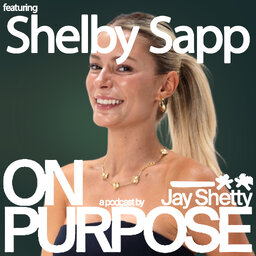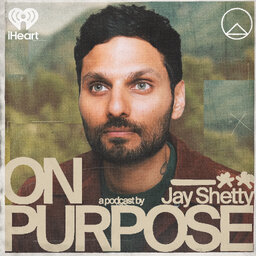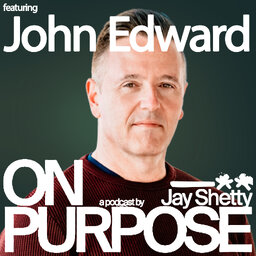5 steps To Find Your Purpose (The Fast Track To Build The Life You Want)
What excites you the most in life?
When do you feel most fulfilled?
What if you could not only live longer but also feel healthier, more energized, and more fulfilled as you age? Today, Jay uncovers the secrets of longevity, sharing wisdom from some of the world’s leading experts in health, wellness, and aging. Recorded at the Longevity Summit, this episode explores groundbreaking insights on how we can extend not just our lifespan but also our health span, ensuring that we live longer, healthier, and more fulfilling lives.
Jay unpacks the science behind aging, from cellular regeneration to the role of mindset in shaping our physical well-being. He shares compelling research on nutrition, movement, and daily habits that contribute to longevity, emphasizing how small, intentional changes can have a profound impact. Through thought-provoking conversations and personal reflections, Jay helps us understand how to take control of our well-being, cultivate emotional resilience, and prioritize self-care in ways that align with our long-term health goals.
In this episode, you'll learn:
How to Add More Healthy Years to Your Life
How to Strengthen Your Mindset for a Longer Life
How to Reduce Stress and Boost Emotional Resilience
How to Create a Longevity-Focused Morning Routine
How to Use Movement and Exercise to Slow Aging
How to Prioritize Sleep for Long-Term Wellness
The journey to longevity isn’t about drastic changes or chasing the latest health trends, it’s about making small, intentional choices every day that add up over time.
With Love and Gratitude,
Jay Shetty
What We Discuss:
00:00 Intro
03:11 Experience the Grounding Meditation
09:22 The Search for Your Purpose
12:55 What Are You Holding Onto?
17:25 This Isn’t Your Purpose
19:42 Who Found the Most Meaning in Life
32:11 Five Check-In Systems for Envy
32:49 #1: Deep Sense of Belonging
39:46 #2: Continuous Learning
44:55 #3: Individuality
47:00 #4: Significance
50:40 #5: Service
53:31 The Biggest Key to Meaning and Purpose
In 1 playlist(s)
On Purpose with Jay Shetty
My name is Jay Shetty, and my purpose is to make wisdom go viral. I’m fortunate to have fascinating …Social links
Follow podcast
Recent clips

Sales Expert Shelby Sapp: The Simple Sales Framework You Can Use in Work, Money, and Relationships (Follow THIS Method to FINALLY Get The Life You Deserve)
1:41:31

Stop Saying Yes When You Want to Say No! (Follow THESE Clear Boundaries to Protect Your Energy)
23:09

John Edward: Stop Trying to “Move On” After Loss (Use THIS Daily Practice to Make Peace Without the Answers)
1:29:30
 On Purpose with Jay Shetty
On Purpose with Jay Shetty